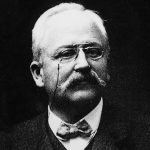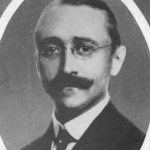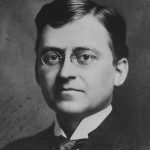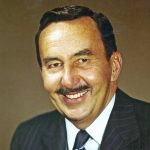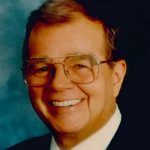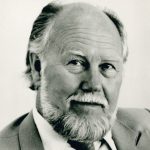Financing the Future of Ford Motor Company
Harold Poling guided Ford Motor Company through a massive restructuring that returned the company to profitability. Nicknamed “Red” because of his auburn hair, Poling was born in Troy, Michigan in 1925. His father was an auto mechanic, and the pair would regularly fix cars in the family garage. “We’d grind valves, change piston rings and clutches, and do lots of other jobs,” Poling said. “It was serious work, but to me it was very interesting.” Poling joined the Navy at 17 and would later earn a bachelor’s degree from Monmouth College as well as an MBA from Indiana University.
Poling would join Ford in 1951 as a cost analyst in the company’s steel division and later serve as manager of the chassis, engine, and product development divisions. He quickly rose through Ford’s ranks thanks to his impressive financial acumen and stable, low-key leadership style. He became President of Ford of Europe in 1975, and later, President of Ford Motor Company’s North American operations. Poling is often cited as the man that saved Ford Motor Company from bankruptcy during the 1980’s. At the time, Ford’s financial losses were piling up and the company’s future looked bleak. Realizing the company was going to have to take drastic action to save itself, Poling, along with other senior Ford executives, backed a $3 billion program to create an all-new vehicle. That program would produce the Ford Taurus, which went on to become immensely successful. “It was a tremendous gamble”, Poling said of the Taurus. “We bet the company, but it paid off handsomely.”
Poling continued to institute financial discipline across the company. He introduced prudent cost-cutting measures, scaled back production, and is also credited with introducing Japanese-style production methods to improve quality. Ford would report $5.3 billion in profits for 1988, an industry record, and Poling would be named Ford’s CEO in 1990. Considered a steady, levelheaded executive, Poling was well-respected by both his subordinates and his peers. “He was not a table-pounding kind of guy”, recalled fellow Hall of Fame inductee David Cole, “just very smart, very cordial and very professional.”

